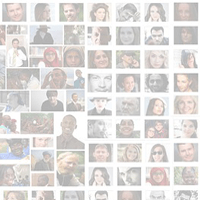Your Social Media Rights Brought to You by the Cloud

A call for a third-party liaison
Hern√°n Gonzalez, Creative Director, Dutch Monaco
Social media sites make it easy for people to get lost in the crowd. There are many opportunities for self expression and straightforward interaction, but sometimes mediums such as Google, Amazon, Dropbox and others that are most useful for sharing information are at the same time are responsible for users losing their identity.
It may be surprising, but even the most unique and abstract material on the Web can end up attributed to an anonymous user. Whether it's an impressive article, info-graphic or image, media is generally posted from the creator's account and the question of ownership is easily answered. Media can then be shared and discussed, and while these things are partly beneficial, this chain of events can also lead to places where the creator's claim is lost. Once it's been shared enough, indicators of ownership can be omitted, or even worse, claimed by another user eager to gain recognition.
The solution to this problem may seem obvious, but in fact it's not. A user can make their work proprietary by including a logo, watermark or credentials. Thus, we assume that the user's rights travel with the work. Sadly, the solution isn't as reliable as it seems. Steps to prevent theft can be taken, sure, but once content is shared via a social media platform, it ultimately becomes the platform's property as much as one's own. Facebook's terms may explicitly state that users possess all the rights to their personal content, but like almost anything on the Web, material can be altered, misused or stolen.
Although legal action can be taken against such abuses, it's almost impossible to police content across the full span of the Internet, especially when content moves quickly across multiple platforms. The question remains - Who do you contact? The social media site where an image was first posted? The next, where it was shared and altered? Or, the final outlet where someone claimed it as their own? Rather than taking on the task of sorting out these complex legal details, perhaps an alternative option to spare such user frustration should be established.
Google, Amazon, Dropbox and other social media platforms that enable and encourage sharing should consider providing users with their own portion of the cloud that would allow them to basically copyright their work. This new cloud environment would ban social media platforms to be immediately involved in the sharing process. Users would be free to customize, upload and develop as they see fit with the option to share their media with friends-still through their space, undoubtedly owned by them.
Once ownership has been established in this third party space, users can decide how they wish to allow social media sites to have access to their work. Since the point of origin for user files on external social media sites would come from their own space in the cloud, users would then have the power to establish ownership and rights to their work.
By putting the distribution of proprietary media into hands of the user and allowing them the option of selecting what sites have access to the content will the users' content be permanently associated to them. Consequently, a different power and sharing dynamic will be created where social media and the Internet at large won't have to worry about the rights to content as it may rise to the top or is torn apart on its way out.
As social media continues to grow, it's increasingly important that proprietary information and content be shared on the users' terms and that credit is given where credit is due. In the meantime, more social media sharing platforms should consider how to boost their own visibility less and let users present themselves in the way that they want to be seen.

Subscribe to Our Newsletter!
Latest in Social Media









